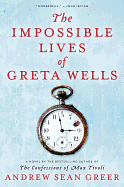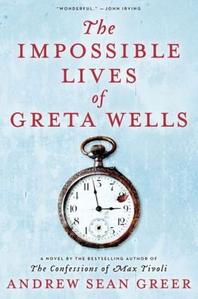

It's October 1918. Felix, still gay and deeply closeted, is alive; she's married to Nathan, but he's at war. This world is kinder, gentler, more comfortable--idyllic, even. She loves it here and thinks: "The impossible happens once to each of us." Yet, just as in The Confessions of Max Tivoli, in which Greer gave Max a chance to woo his love in three different time periods, here, too, he gives Greta more than one chance at the impossible.
Waking up one day, she discovers that she has moved on to November 1941. She's married to Nathan and they have a son. Felix is alive, too. In each period, Greta is always in New York City, at her home in Patchin Place, fully aware of being there, from the future, and accepting each of these worlds, adjusting to "the strange sensation of a body not my own." She tells Felix, "I'm not who you think I am." He responds, "Me neither, baby." In these words, she says, "I heard my dead brother at last."
The traveling continues, back and forth, with Greta constantly learning from each visit, trying to make the right choices and the right decisions each "time." Will she ever get it "right?" Although Greer's use of time-traveling doesn't dwell on the scientific complexities and nuances we've read about in other novels, this lovely, enchanting novel's focus is really on relationships, family, friends and the liabilities of love and loss--the timeless, immutable, wonderful plight of our human condition. --Tom Lavoie
Shelf Talker: Greer's fourth novel asks the question: Knowing what we know now, if we could live in another time and place, would we truly love and live differently?

